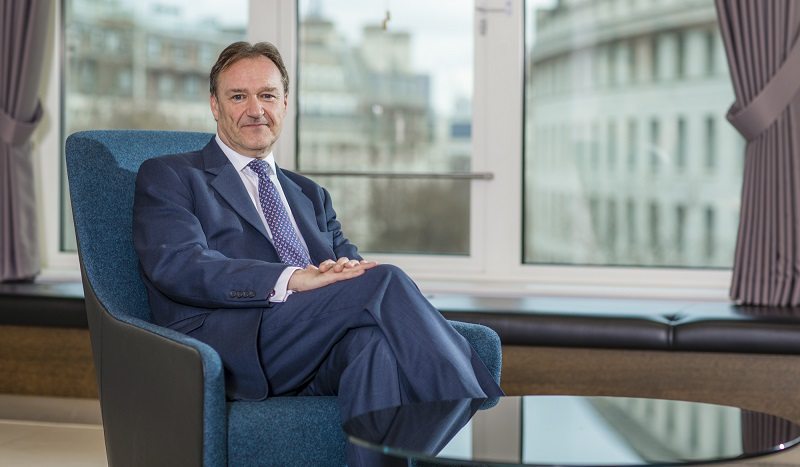In 2004, Laing & Cruickshank, owned by Crédit Lyonnais at the time, was acquired by UBS and became part of UBS Wealth Management. Two years later, McIntosh left to set up Cheviot Investment Management as a limited liability partnership.
He became chief investment officer and founding partner of Cheviot and in 2013 it merged with Quilter. In 2015, Quilter Cheviot was bought by Old Mutual Wealth. Following the merger, McIntosh became CIO at Quilter Cheviot.
“In terms of my daily responsibilities, I was CIO of Cheviot and my colleague, Duncan Gwyther, was CIO of Quilter. We decided that because the combined organisation was quite complex, although very complementary in terms of the types of clients and the style of investments, there was a much greater regulatory input to the oversight part of the CIO’s role.
“We split the roles and I became chief investment strategist, more involved in dayto- day investment policy and Duncan in charge of regulatory oversight and asset allocation,” he explains.
Teething problems
McIntosh’s journey to this point wasn’t exactly a smooth ride, however. Having worked for Credit Suisse Asset Management, a UK arm of the Swiss private bank, he says he spent a lot of time in Zurich.
“The Swiss approach to managing wealth is very different from the UK; it is very product- centric. They like to sell products to their clients and don’t have what I call dedicated investment managers that look after the clients on a day-to-day basis.
“Money tends to be centrally managed and they have relationship managers because many of their clients are not living in the UK.”
After two years at UBS, McIntosh came to believe the firm’s approach was “complete anathema” to his own and set up his own business. However, this too came with challenges, especially when it’s day one and you have no clients.
“You find premises, you set up your infrastructure and then wait for the phone to ring and for clients to come along,” he says. “We had some financial backing but no idea what sort of success we’d have.
“Thankfully, we’d moved 90% of our clients from Laing & Cruickshank to Cheviot and were at £4bn AUM by the time we merged with Quilter.”

McIntosh says that is testimony to the longevity of their client relationships and is similar to the ethics at Quilter.
Still, the challenges didn’t stop there. Having set up just two years before the financial crisis, the firm had to survive the market downturn as an independent, private company with no big backer.
“It was a challenge for me as setting the investment policy was difficult, but we came through that very successfully and, in fact, even stronger because a lot of our competitors didn’t weather the storm well.”
Short-term blues
While McIntosh claims to have never once regretted his decision to pursue economics, he does however have some frustrations within the world of investment.
“There is a fixation with short-term results that is getting much worse rather than better.
“We see this in action at the equity research team when companies are judged on the basis of last quarter’s numbers. It’s the opposite of how a company should be run.
“Any business is only as good as its last three-month reporting, or six months if it’s a UK company. It is an irritation because most of our investors are very long term and the obsession with short-term metrics changes the behaviour of company bosses, who feel under pressure to deliver.”
He says his “biggest beef” is that investment managers are also judged on very short periods of performance. However, it’s not all bad as McIntosh explains his inspiration to get up every morning and do his job.
“I have two role models, one from within the industry and one that has nothing to do with it.”
Article continues on the next page…










